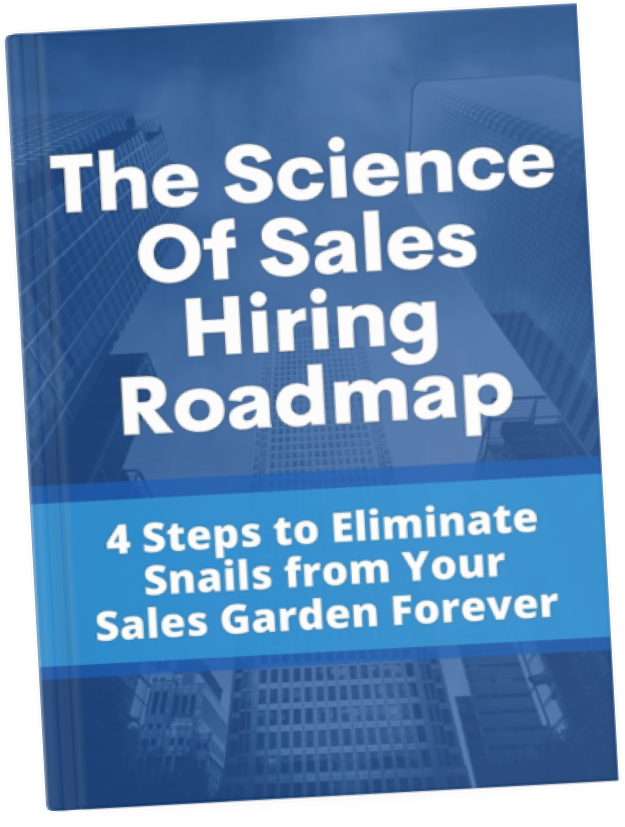Recruiting a sales team isn't easy. I once ran an ad for a week asking companies "Tell Me Your Biggest Sales Hiring Challenge Recruiting a Sales Team." Nothing to buy, just tell me what doesn't work for you when you hire salespeople.
The fact that 30-40% of sales applicants don't show up is a good thing
I didn't understand that one. And I don't see that as a problem. I like to know they have no follow-through BEFORE I hire them.
The fact that 30-40% of sales applicants don't show up is a good thing. I say "The mass of sales applicants are full of bull. They went into sales for all the wrong reasons and your job is to spot them. Get rid of them from your sales hiring system."
Our clients don't have that problem. If the sales cycle is longer than a couple of weeks, real salespeople need a draw to stay alive. That's reality.
We prove in our ads that good quality salespeople make a pile of money. One of our clients pays a $50,000 bonus if their sales hire hits certain benchmarks in the first month.
If the sales cycle is longer than a couple of weeks, real salespeople need a draw to stay alive. That's reality.
Salespeople who lack confidence in their ability to hit these benchmarks are not real salespeople.
This was the biggest category. It is an interesting problem and it has two parts to it.
First, who are you letting in your office? What is your system for selecting applicants to invest energy in? Hint: if you're using LinkedIn Profiles and job experience you are way off the mark.
Second, what are you doing in the interview? Why are you not getting to the heart of the matter when interviewing?
who are you letting in your office? What is your system for selecting applicants to invest energy in? Hint: if you're using LinkedIn Profiles and job experience you are way off the mark.
People can be divided into many different categories. When it comes to hiring salespeople we divide applicants into two piles. "People who fulfill their potential" and “People who fail at it.”
Dr. Carol Dweck of Harvard University has a foolproof method. She explains people have two distinct worldviews when it comes to accomplishment.
There are those who believe in fixed prior ability and there are those who believe in growth of ability.
Malcolm Gladwell, the author and New Yorker writer, has suggested that as a society we value natural, effortless accomplishment over achievement through effort. We endow our heroes with superhuman abilities that led them inevitably toward their greatness. It’s as if Midori popped out of the womb fiddling, Michael Jordan dribbling, and Picasso doodling. This captures the fixed mindset perfectly. And it’s everywhere.
Malcolm Gladwell, the author and New Yorker writer, has suggested that as a society we value natural, effortless accomplishment over achievement through effort.
People with the growth mindset, however, believe something very different. For them, even geniuses have to work hard for their achievements.
Our clients use an interview that we call the FST Intelligence Interview Sequence. It's based on this model. We look for learners and growers — and of course those who enjoy the process of influencing others.
The next time you find yourself saying, "He or she handled themselves well in the interview" you might well be on the road to making another bad sales hire
